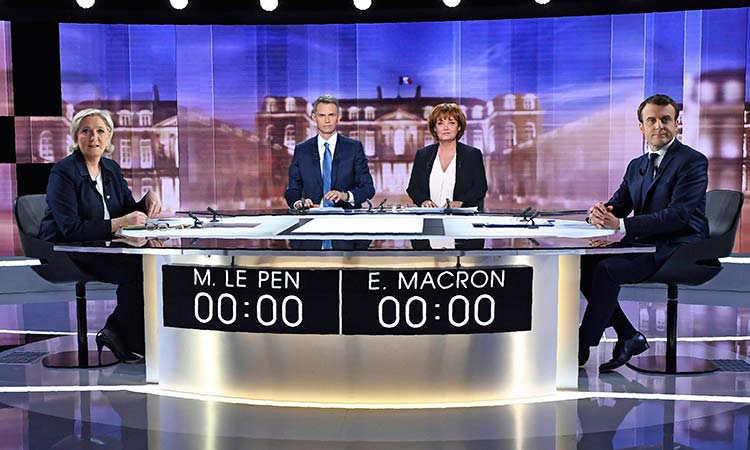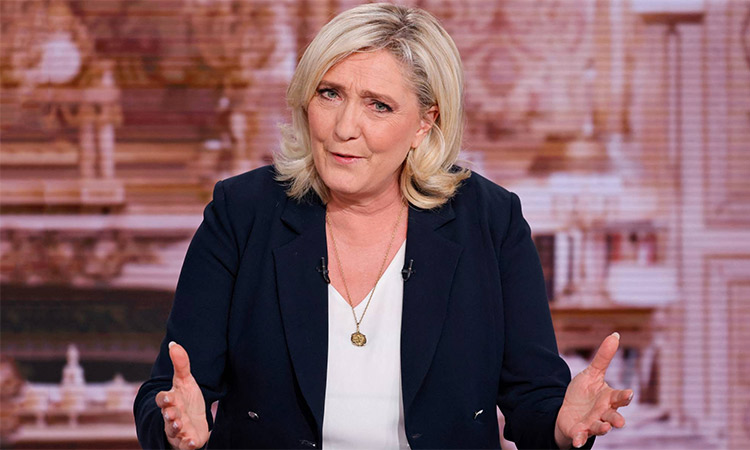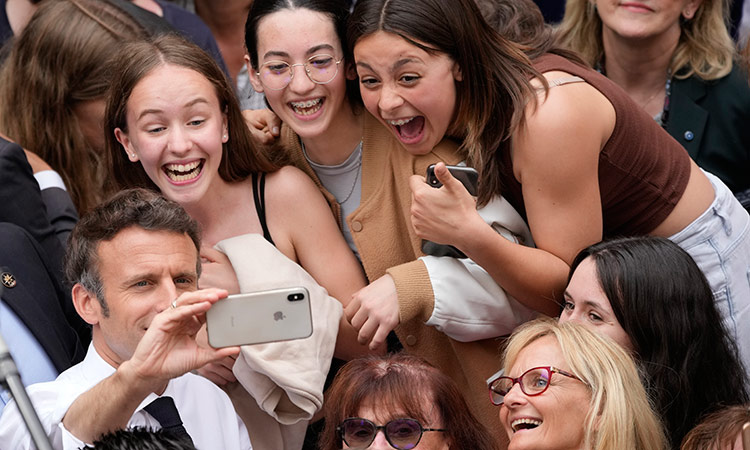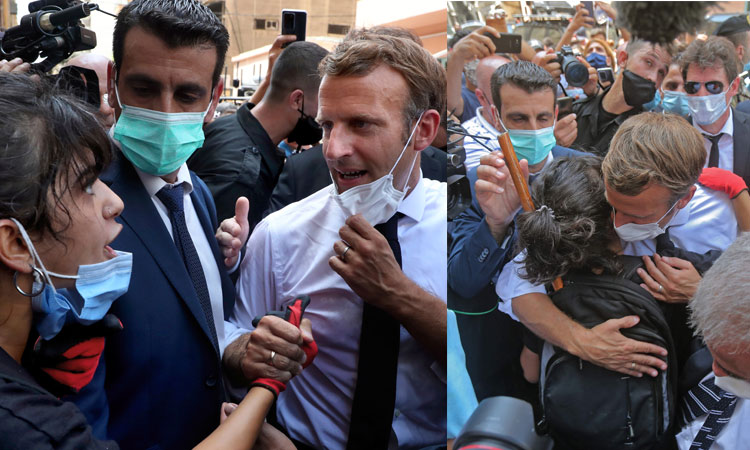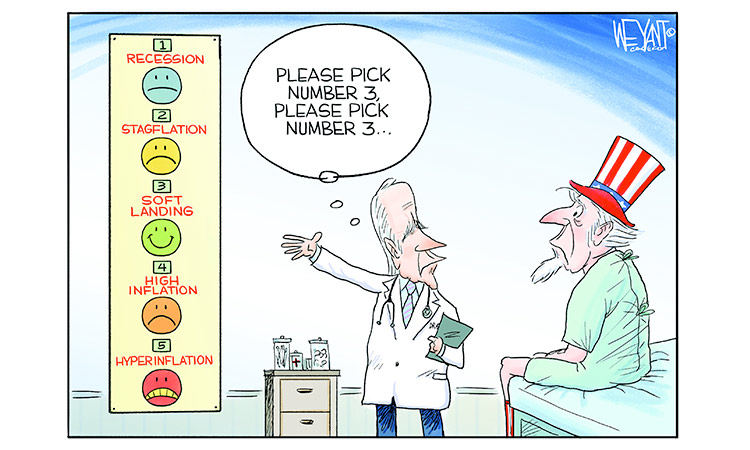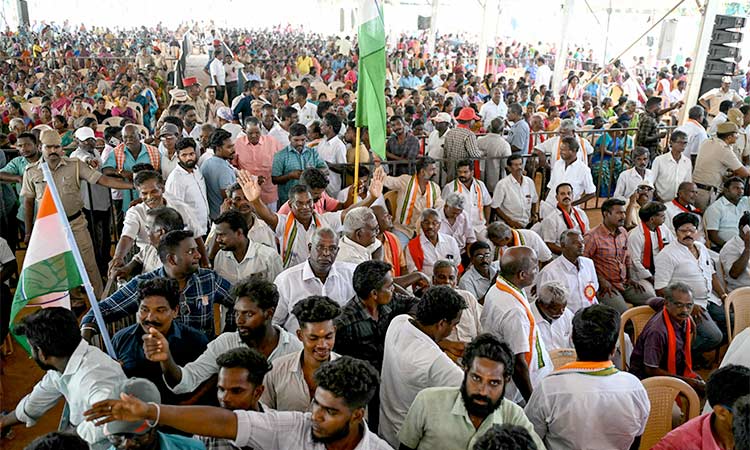Macron’s victory riddled with irony

Supporters of Emmanuel Macron celebrate as a giant screen in front of the Eiffel Tower shows final results of the French presidential elections in Paris. Reuters
The 21 per cent vote that went to the Left candidate Jean-Luc Melenchon turned out to be the vital. Sceptics feared that most Leftist voters would stay at home instead of voting for Macron howsoever they disliked him and opposed his economic policies, and that could be dangerous because then Le Pen could get the undecided conservative vote and move towards victory. The difference between Macron and Le Pen was close if not too close. On Sunday, the gap widened with Macron winning 59.1 per cent and Le Pen getting 41.9 per cent. It was a respectable and comfortable margin. But the votes that Macron got, and which enabled his victory were not his votes. They were negative votes.
These voters did not want Le Pen more than they did not want Macron. And no one is more acutely conscious of this than Macron himself. He said, “Many in this country voted for me not because they support my ideas but to keep out those of the far-right.
I want to thank them and know I owe them a debt in the years to come.” He also said, “We have to be benevolent and respectful because our country is riddled with so many doubts, so many divisions.”
This thank-you note from Macron is delightfully vague. It does not promise that he will change his political ideas and become some sort of a socialist. He remains a hardened centrist, who believes in the market ideology. He has been pushing for increasing the retirement age so that people work for more years before they claim the pension.
And he also wants longer working days. He shows a steely sense of realism, and he believes that there are no soft options in running the economy. He has also taken a tough stance on Islamism of the migrants, especially after episodes of terrorist violence. He has brought mosques under surveillance, and his critics believe that he is adopting an Islamophobic stance. But Macron shows no sign of relenting on the policy choices that he has made.
Political observers say that Macron’s victory in the presidential election on Sunday does not give him the free hand to pursue his policies. His party, which is a new one and formed in 2017 when he entered the presidential fray, and called simply The Movement, has to win the majority of seats in the parliamentary elections to be held in June.
There is then another round of fierce battle with the Far Left as well as the Far Right. The Far Left is only too ready to fight Macron’s economic policies every inch of the way. The far left leader, Melenchon told his reporters not to give up, and to beat Macron in the June parliamentary elections. If Macron’s party does not get a parliamentary majority, then Macron will be in trouble despite the fact that he will remain president for the next five years but he will not be able to do much. Forced to name a prime minister from another with a parliamentary majority, it will be a struggle for him to push through his policies.
It is true that the traditional mainstream parties of France, the Socialists and the Gaullists, have been marginalised, leaving the field to the far right Le Pen, the far left Melenchon and hardened centrist, who is more to the right than to the left, Macron.
